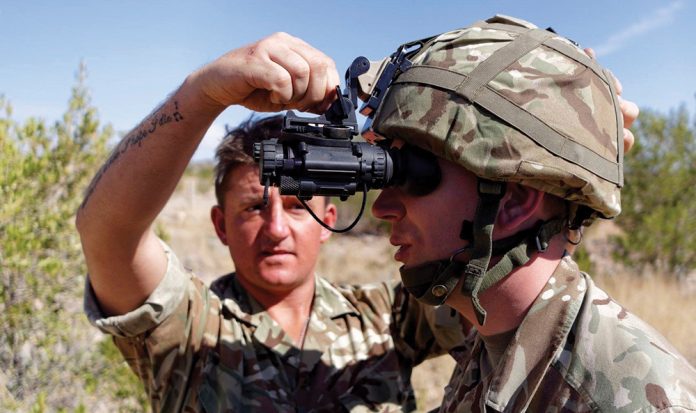But Brig. Robin Lindsay, commander of the 51st Infantry Brigade and HQ Scotland, has the figures at his fingertips. “We make a very significant contribution not only to the broader defence of the nation, but to the prosperity of Scotland too,” he said.
he Army’s very presence in Scotland, with its 4000 regular and 4000 reserve troops and the ministrations of 1100 civil servants, contributes to the wider defence presence in Scotland, which is worth £1.64bn to the Scottish economy. In addition, defence has generated another 10,000 jobs in the private sector too.
The worth to the wider community of all the extra training, knowledge and experience reservists and regulars returning to civvy street take with them is harder to reflect, but there are figures for that too.
“The value of training to employers is £8,000 a year per individual, and for young officers that rises to about £22,000 a year.
“For an employer, that’s the value in terms of the training their employee has received. It means Army Reservists come with a significant number of additional meta-skills in the areas of leadership, decision-making, collaboration and management.
“They are also frequently exposed to situations that take them out of their comfort zone, which stretches them and creates adaptability, a valuable commodity for employers.”
The current army recruitment campaign, branded Army Confidence 2020, highlights another quality so often possessed by service personnel.
“The campaign serves to illustrate the sort of confidence that military service can imbue,” he said, “a confidence that is earned over time by overcoming challenges, making a positive impact and seeing themselves achieve.”
The benefits extended well beyond army life. The confidence gained lasts for life and regulars and reservists alike took it with them, into the businesses that employed them.
Brig. Lindsay said: “There are many benefits for those who have an Army Reservist on their workforce.
“Chief among them is that it allows employees to upskill, to burnish their leadership and thinking skills, and to enhance their ability to work as part of a team.”
The majority of Army Reserve training takes place on weekends and after work during the week, but reservists are encouraged to undertake a two-week period of military training each year as well.
“Many employers, particularly in the public sector, see the value of that to their own work force and give reservists additional leave to take part,” he said. “Other reservists will simply take annual leave to do it.”
The army is one of the biggest providers of training in Britain – indeed, it is the biggest provider of apprenticeships. At any one point, up to 15,000 people will be on one of the 40 apprenticeship schemes run by the army.
“I think the army is genuinely an engine for social mobility and in a manner I don’t think we communicate enough,” he said.
“I think the way in which we provide education and training is a unique selling point for both personnel and employers, but I don’t think many people realise just what a big contribution the army makes to society today.”
Besides the defence role the 51st Infantry Brigade fulfils on home soil, it also provides assistance to the civil authorities when there is a need. In recent years, this has included supporting the hosting of the Commonwealth Games and helping communities in the grip of Arctic weather.
It has an overseas role to play too, assisting in stability operations in Sudan, Iraq, Cyprus and the Arabian Gulf, to name but a few.






